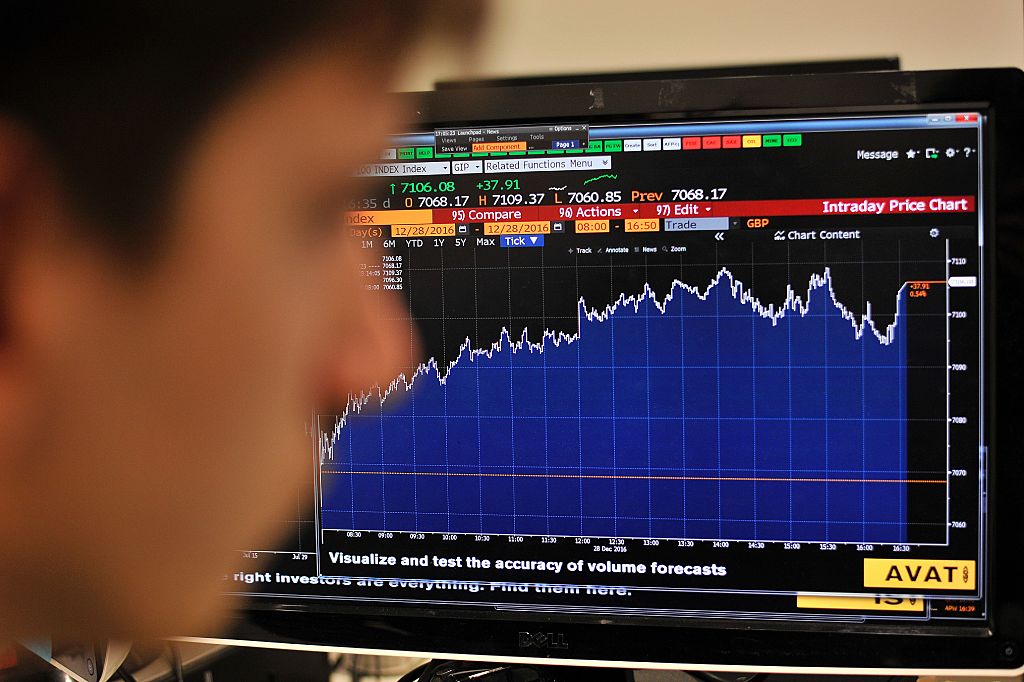UK bank shares: best opportunities in 2021
High street lenders are tipped as a good way to play the post Covid-19 macro recovery.
12th January 2021 14:38
by Graeme Evans from interactive investor
High street lenders are tipped as a good way to play the post Covid-19 macro recovery.

A bullish research note on European banks has identified Barclays (LSE:BARC) as one of the region's best opportunities for investors eyeing a potential re-rating of the beleaguered sector.
Arguing that now is the stage of the economic cycle to own banks, UBS analyst Jason Napier says that European lenders, as a group, are now adequately capitalised and reasonably well provisioned against loan losses caused by the pandemic.
- Invest with ii: Top UK Shares | Share Prices Today | Open a Trading Account
He added: “We see banks as a good vehicle for expressing a positive stance on the post Covid-19 macro recovery.”
- My view on UK bank shares and dividend stocks
- UK equities at a turning point: the shares the pros are backing
Napier's eight-strong list of most preferred banking stocks features the FTSE 100 index traded Barclays, with a target price of 180p offering a 15% upside on the start of the week.
Hopes for an economic rebound today pushed its shares up by 3.2p to 154.42p, with Lloyds Banking Group (LSE:LLOY) among other big movers following a rise of 2% or 0.8p to 36.94p.
Further ‘buy’ recommendations on Napier's list include AIB Group (EURONEXT:A5G), BNP Paribas (EURONEXT:BNP) and ING (EURONEXT:INGA), while Spain's Banco Santander (LSE:BNC) has also been added. He is less enthusiastic about HSBC Holdings (LSE:HSBA), which joins Commerzbank (XETRA:CBK) and Societe Generale (EURONEXT:GLE) on a seven-strong list of “stocks to avoid”. The UBS price target on the Asia-facing bank is 330p, which compares with 411p today.
The banking sector has endured a long period in stock market exile, with Brexit uncertainty adding to material risks for a UK sector that also includes NatWest Group (LSE:NWG) and Virgin Money UK (LSE:VMUK).
However, UBS said the building blocks are in place for a strong 2021 as a steepening yield curve, weakening US dollar and lower political risk should be potentially positive for bank stocks.
Napier said: “We see capital levels as more than adequate, expected pre-tax profits to rise by 65% to 2022 as loan losses halve, and for substantial dividends to resume in the second half of 2021 or first half of 2022.”
- A blue-chip stock pick for 2021
- Four reasons to own Lloyds and other bank shares
- Virgin Money: where will its shares go from here?
A share price recovery has been underway since November, with Napier noting that valuations for European banks are up by about one-third over the last quarter. They are also up 40% from their second half lows and 50% from their April trough, placing the sector on a valuation of 11.5 times one-year forward earnings.
As a return to dividends is expected later this year, Napier sees a range of relatively high-quality banks trading at undemanding levels backed by decent balance sheets.
On Barclays, he notes a rising probability of a “meaningful outperformance” on loan loss expectations that could materially change capital generation and the capacity for shareholder distributions.
The bank has already outperformed profit and capital forecasts in the aftermath of Covid-19, driven by the strength of its corporate and investment banking division.
With only 37% of revenues from net interest income and a potential near-term upside from recovering activity levels, Napier thinks the UK-listed stock is “attractively valued for recovery”.
- The two UK bank shares to buy right now
- Take control of your retirement planning with our award-winning, low-cost Self-Invested Personal Pension (SIPP)
In contrast, UBS warns that HSBC is facing near-term top line pressures linked to lower interest rates and the withdrawal of capital from the Global Banking and Markets division.
A more significant restructuring plan due to be unveiled alongside forthcoming annual results may also demand a larger budget, which could cap dividend payments.
Napier also warns of geopolitical pressures and a longer-term downside risk to Hong Kong retail profit margins after regulators there recently approved eight new digital bank licences.
These articles are provided for information purposes only. Occasionally, an opinion about whether to buy or sell a specific investment may be provided by third parties. The content is not intended to be a personal recommendation to buy or sell any financial instrument or product, or to adopt any investment strategy as it is not provided based on an assessment of your investing knowledge and experience, your financial situation or your investment objectives. The value of your investments, and the income derived from them, may go down as well as up. You may not get back all the money that you invest. The investments referred to in this article may not be suitable for all investors, and if in doubt, an investor should seek advice from a qualified investment adviser.
Full performance can be found on the company or index summary page on the interactive investor website. Simply click on the company's or index name highlighted in the article.